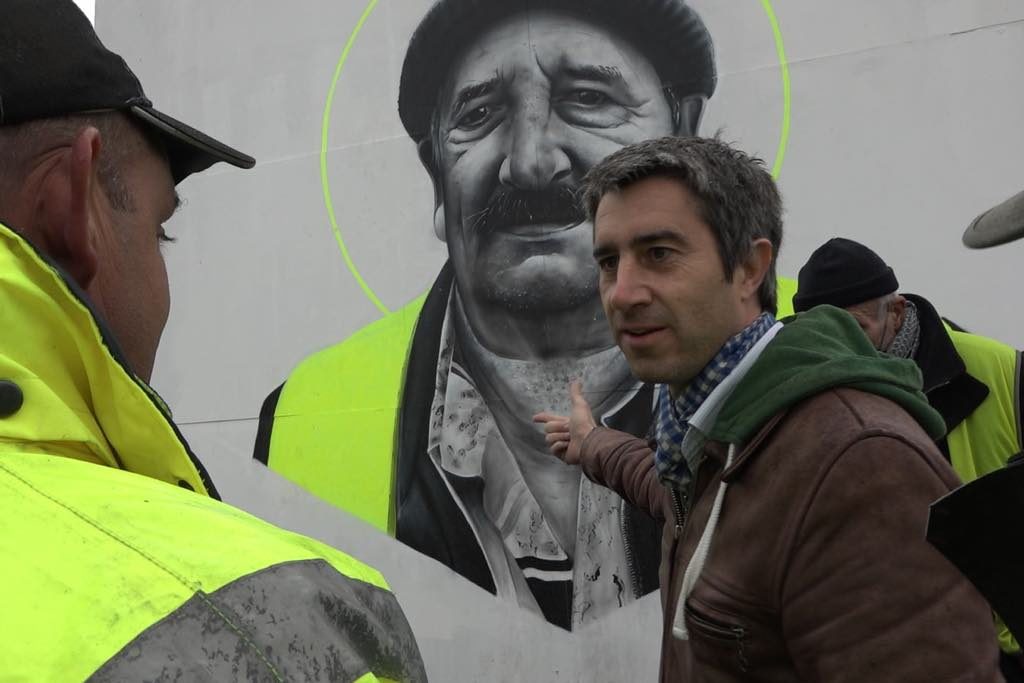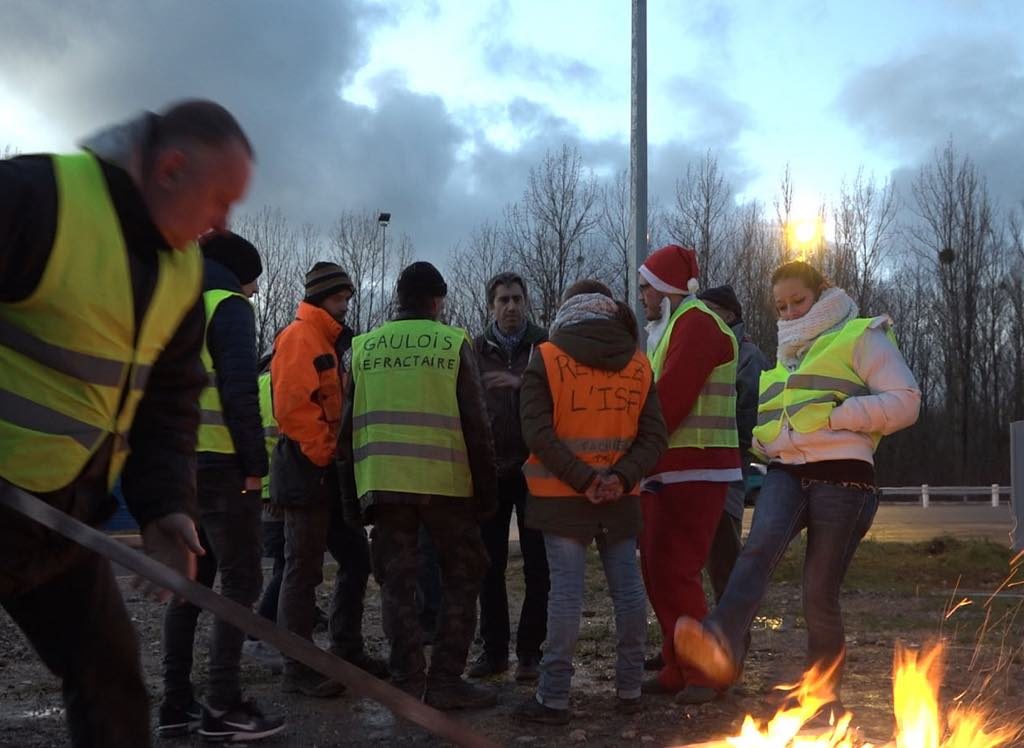
I went to see the documentary J’Veux du Soleil! (I Want Some Sun!) hoping to find an answer to the question that seems to be on everyone’s mind in France these days: what do the Gilets Jaunes (Yellow Vests) want?
Directors Gilles Perret and François Ruffin had a rather different motive for making the movie. At the beginning of it, Ruffin says, “I kept hearing they were fascists, so I went to see for myself.” His conclusion: “They’re not fascists: they’re just people.”
And people they are – people with a lot of problems. The movement started in the French provinces, sparked by the government’s decision to raise taxes on diesel fuel, a great idea for the environment but bad news for people who need cars because they live in places lacking efficient public transportation and who can barely make ends meet to begin with.
To protest, they took to the road and occupied traffic roundabouts, wearing the yellow safety vests they are required by law to keep in their cars (a brilliant branding move) and slowing down traffic to get attention. President Emmanuel Macron soon rescinded the tax, but the movement lived on and spread and is now in its 25th week, with demonstrations every Saturday in cities all over France. The demonstrations are regularly joined by casseurs, people who are not necessarily associated with the movement and who engage in violence – against the police (who are no angels in this story either) and against businesses – whether for political reasons, personal gain (through looting) or because they just enjoy it.
Ruffin and Perret drove all over France, stopping at roundabouts to talk to the demonstrators. It was the month of December, and it seemed to be miserably cold and rainy all over the country.
They heard many, many sad stories from unemployed, partially employed and underpaid people. One man had had his last meal three days earlier: the free pizza given to him by his employer once a week. There were tales of empty refrigerators and having to return necessary groceries to the supermarket shelves for lack of money to pay for them, among other depression-inducing humiliations.
One clear takeaway from the film is that many of these people had been living their painful lives in isolation, too embarrassed to talk about their troubles. The Gilets Jaunes movement has given them a community and new friends as everyone pitches in to build cabins on the roundabouts for warmth and to barbecue sausages for sustenance.
When Ruffin asked a man name Khaled why he used a cane, he said it was because both his legs had been amputated. “I never told anyone that before,” he said to the camera while surrounded by his newfound friends.

There are many, many moving moments like this in the film. There is also a lot of mockery of Macron, who looks like a puppet while giving speeches on TV in his so-far vain attempts to calm the situation.
I know now that what the Gilets Jaunes want is simply a better life, with enough money to live with dignity. Unfortunately, they still seem to have no concrete proposals or goals or an organization that could formulate and promote them.
It must be kept in mind that Ruffin, the French Michael Moore, is anything but an objective observer. In his last film, Merci, Patron (reviewed here), he concocted an elaborate ruse to trick billionaire Bernard Arnault into making a cash settlement to a couple who were about to lose their house because the LVMH-owned factory they had worked in had been relocated to Poland.
Ruffin doesn’t seem to draw any conclusions about the Gilets Jaunes movement, which puzzles and annoys so many, except that the people involved are just regular people with hard lives and legitimate needs. One thing you can say for him, however, is that he has plenty of empathy for the downtrodden, something that is sorely lacking in politics today.
Favorite
Well written and well said.
Thank you.
Thanks for this summary. It’s so far been confusing to me. When I returned from my visit my friends asked me about the yellow jackets and I was unclear about the issues. This article helped me understand a little more and I can refer friends to it.